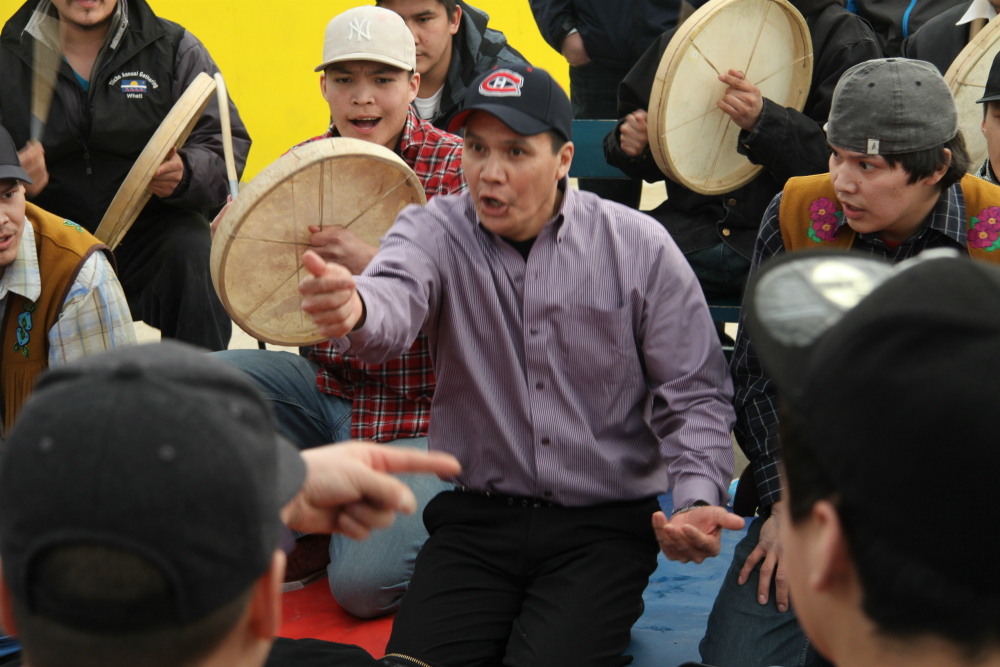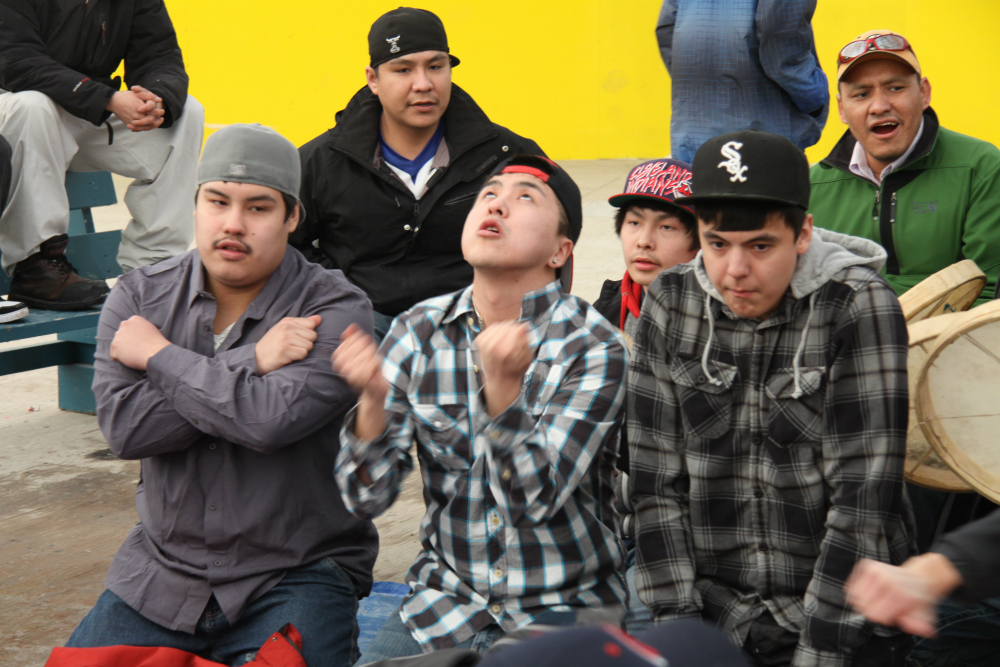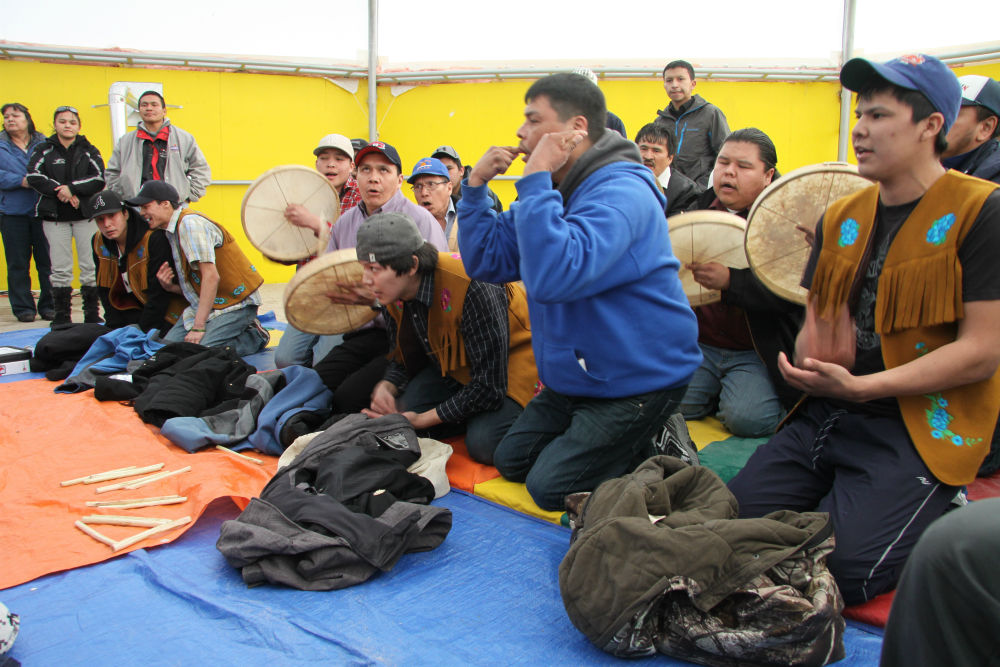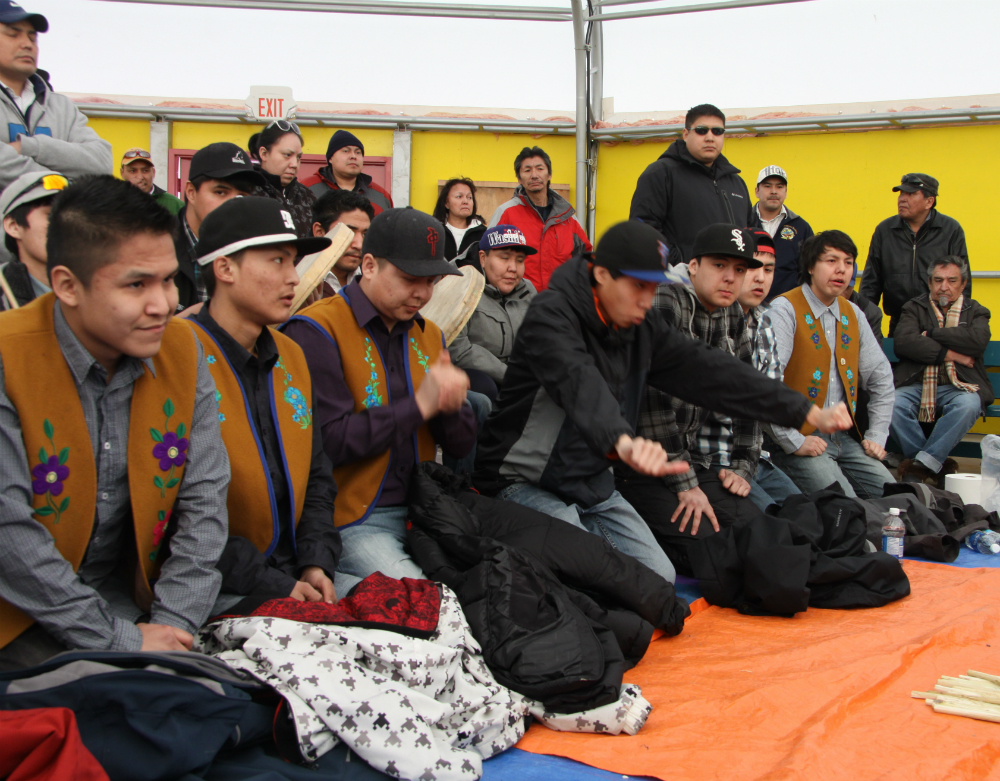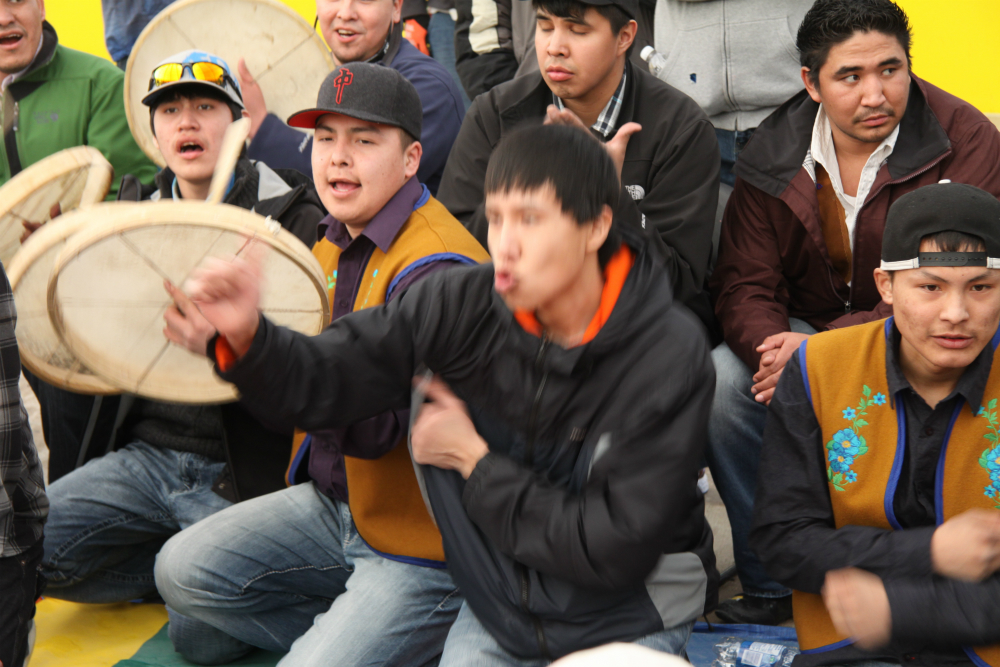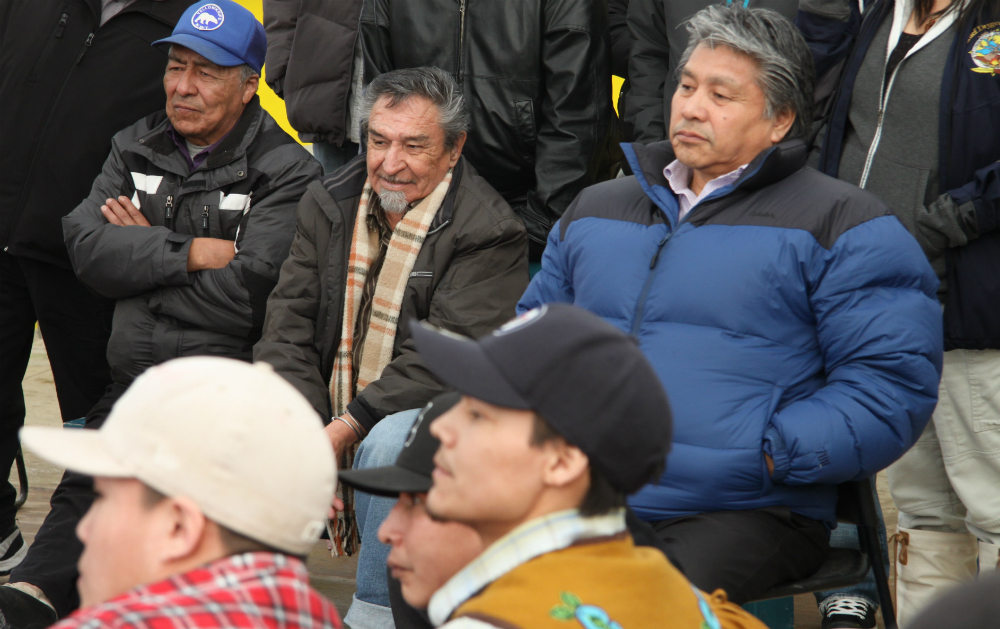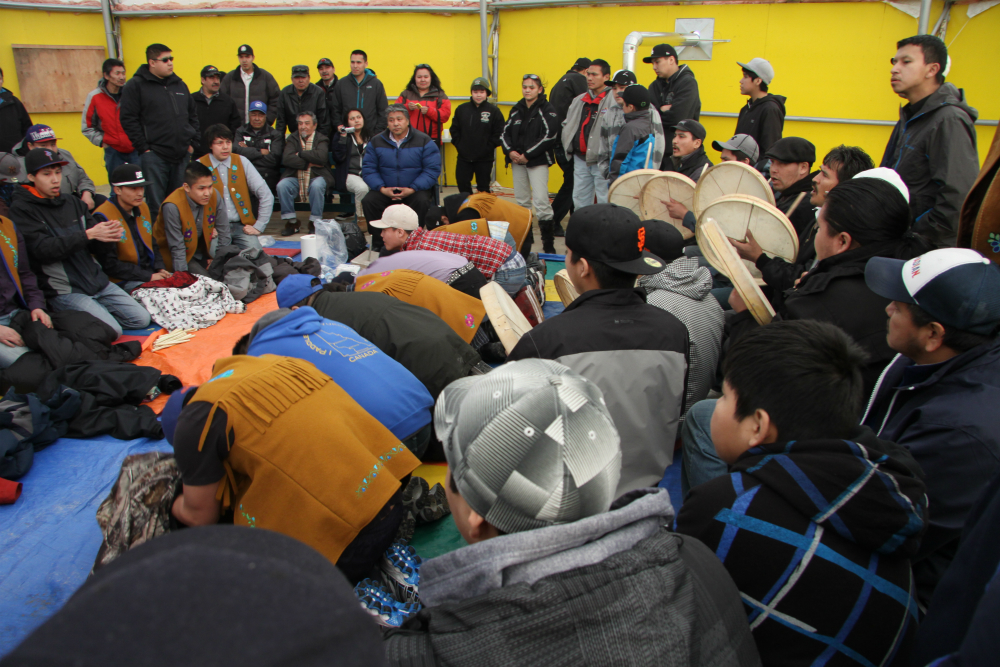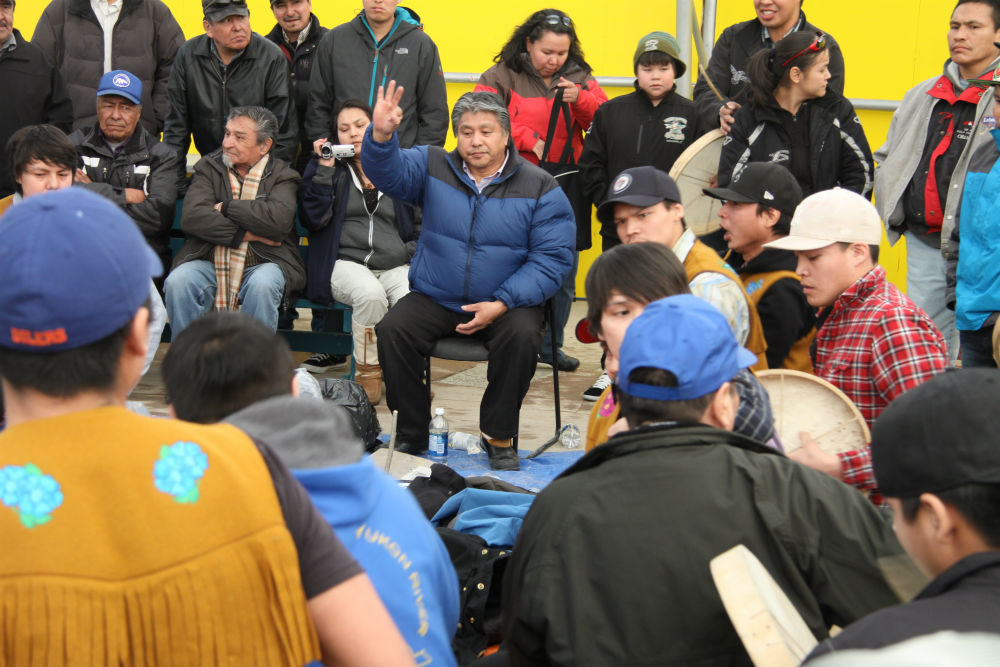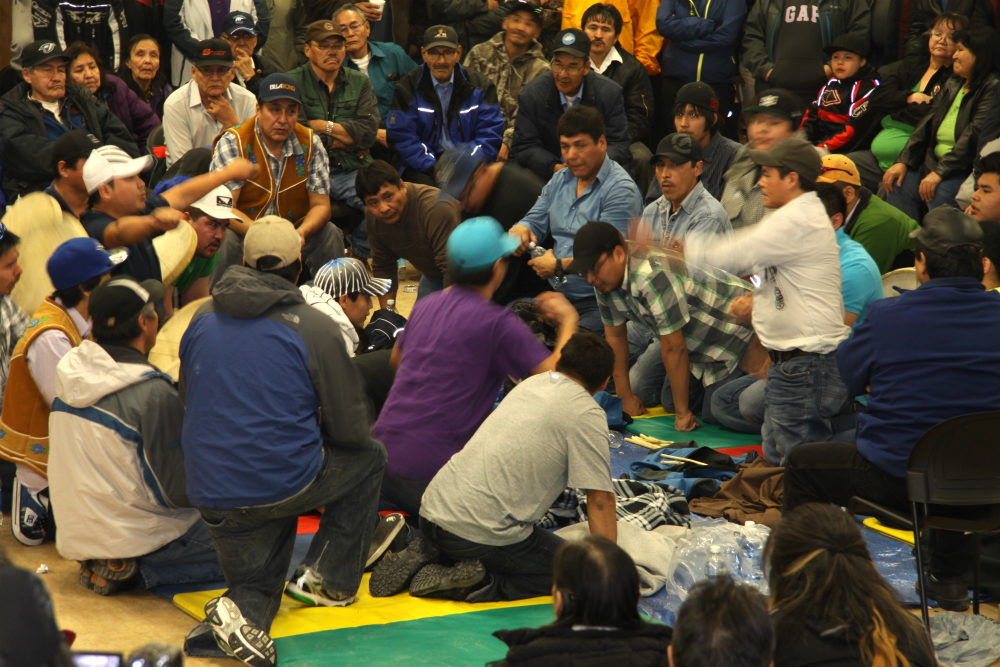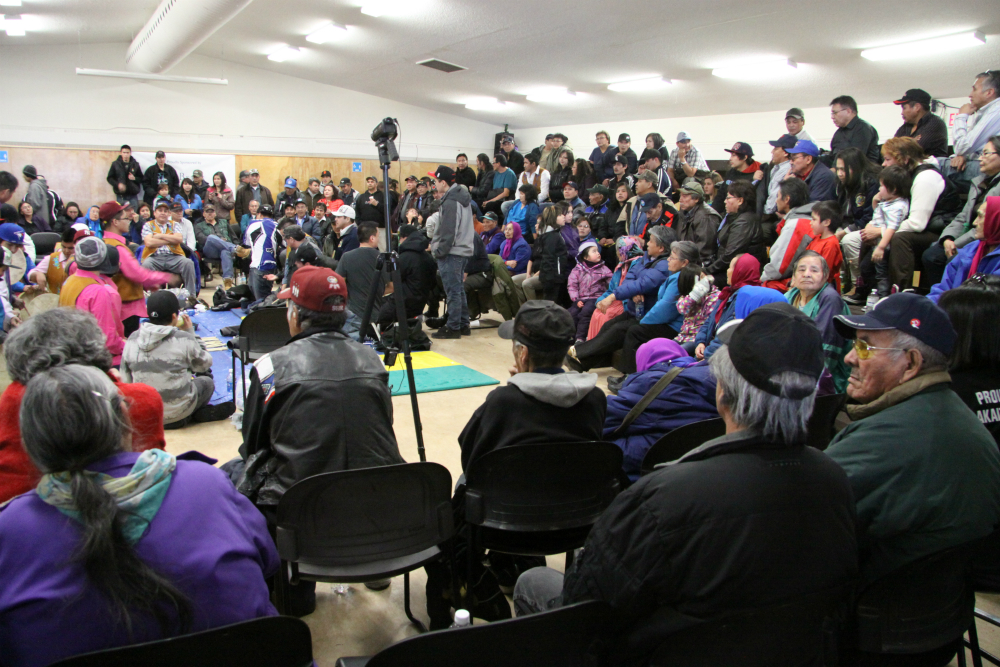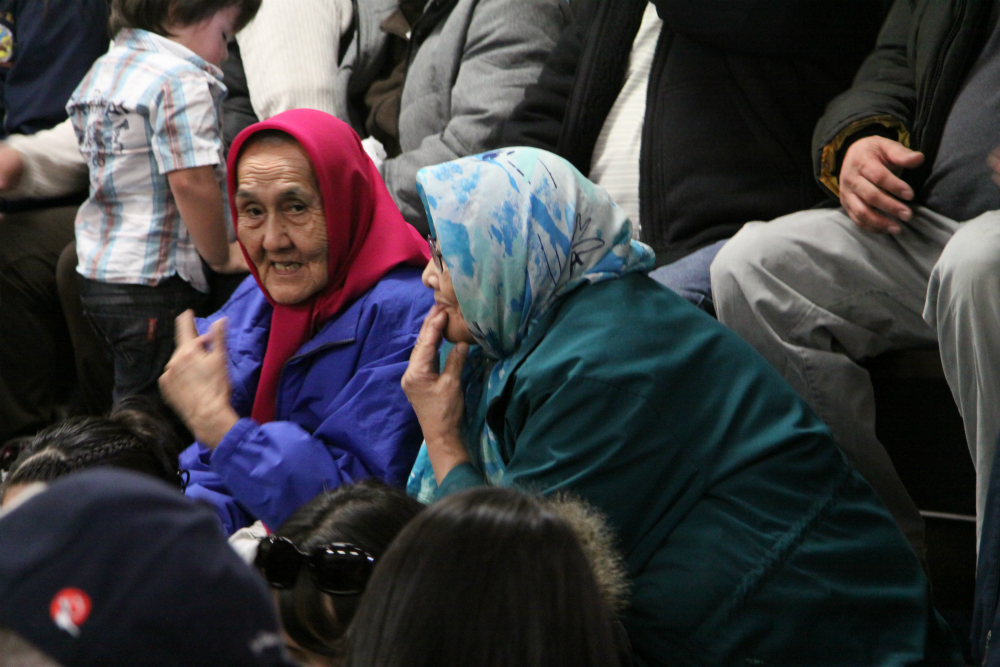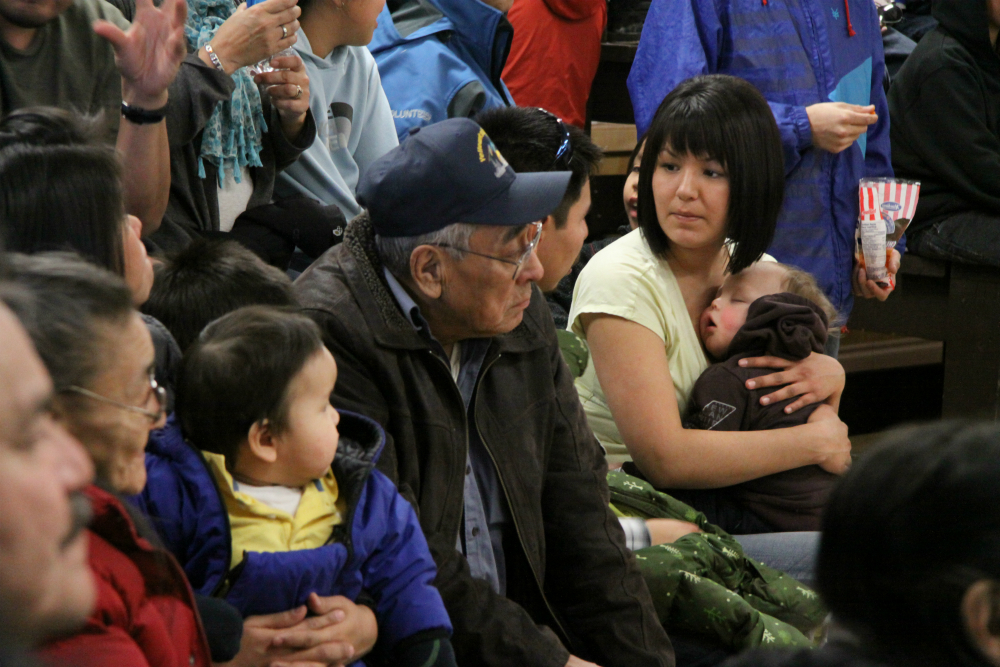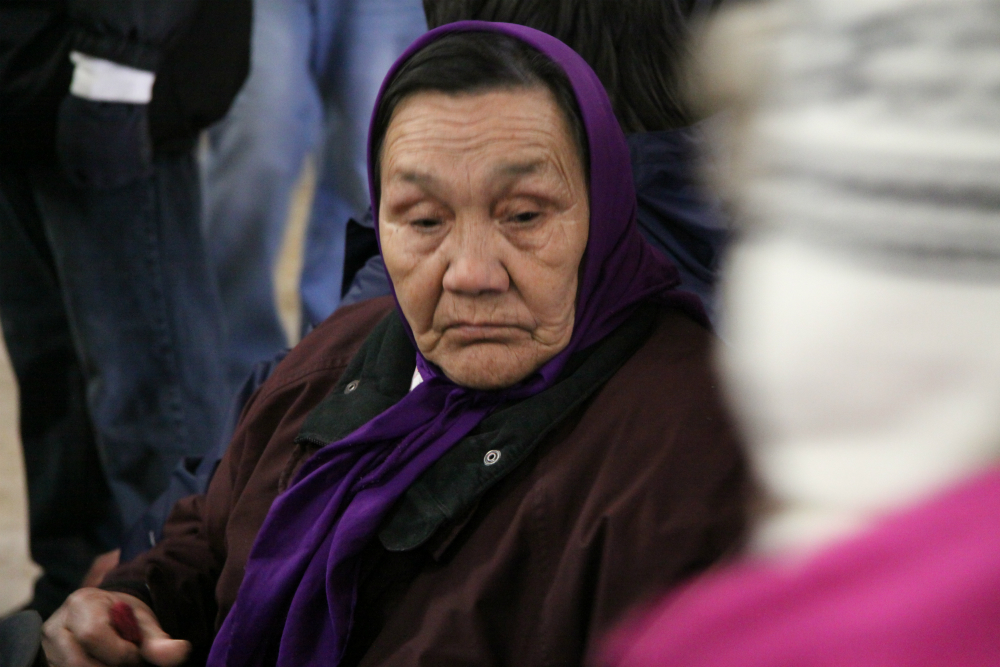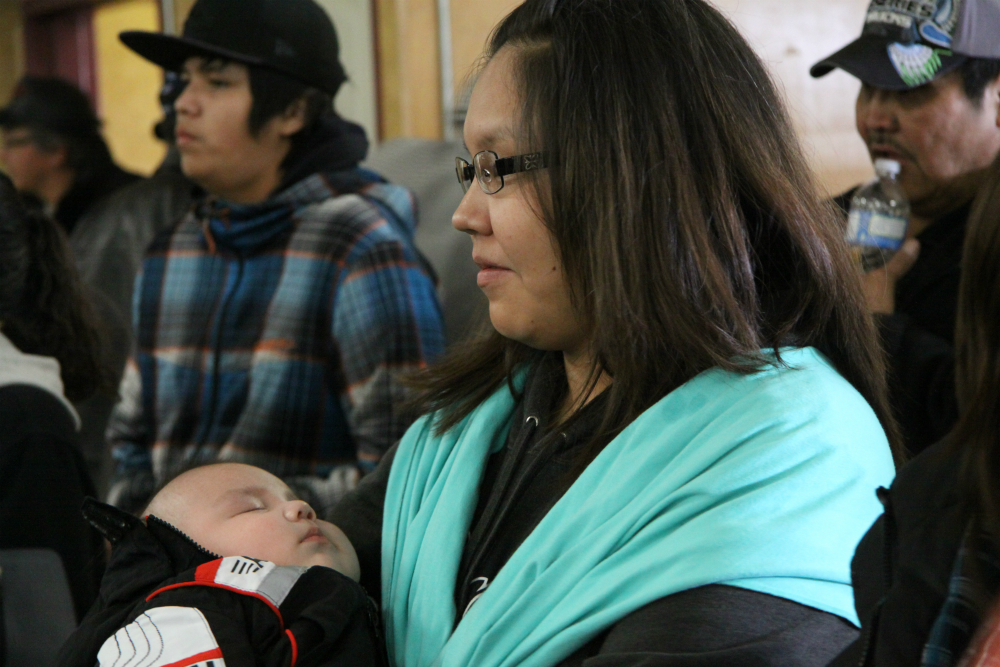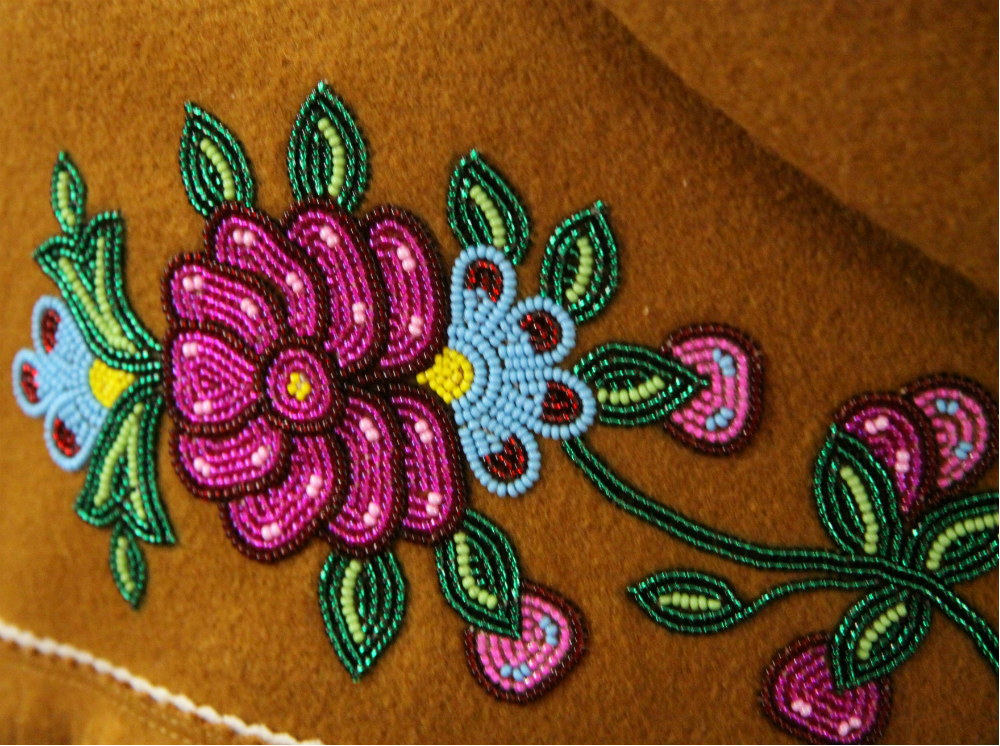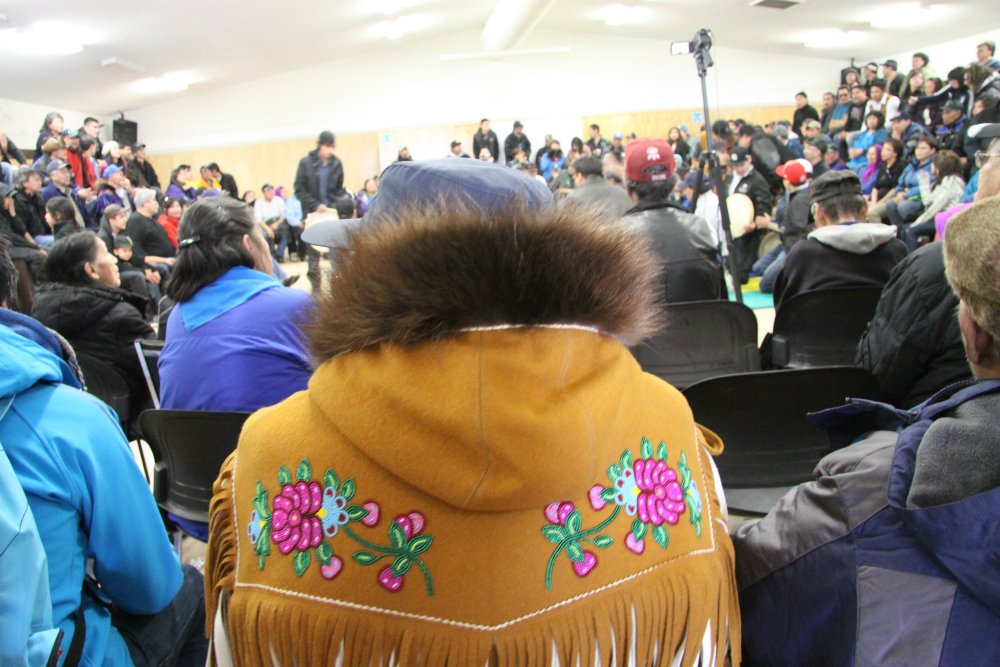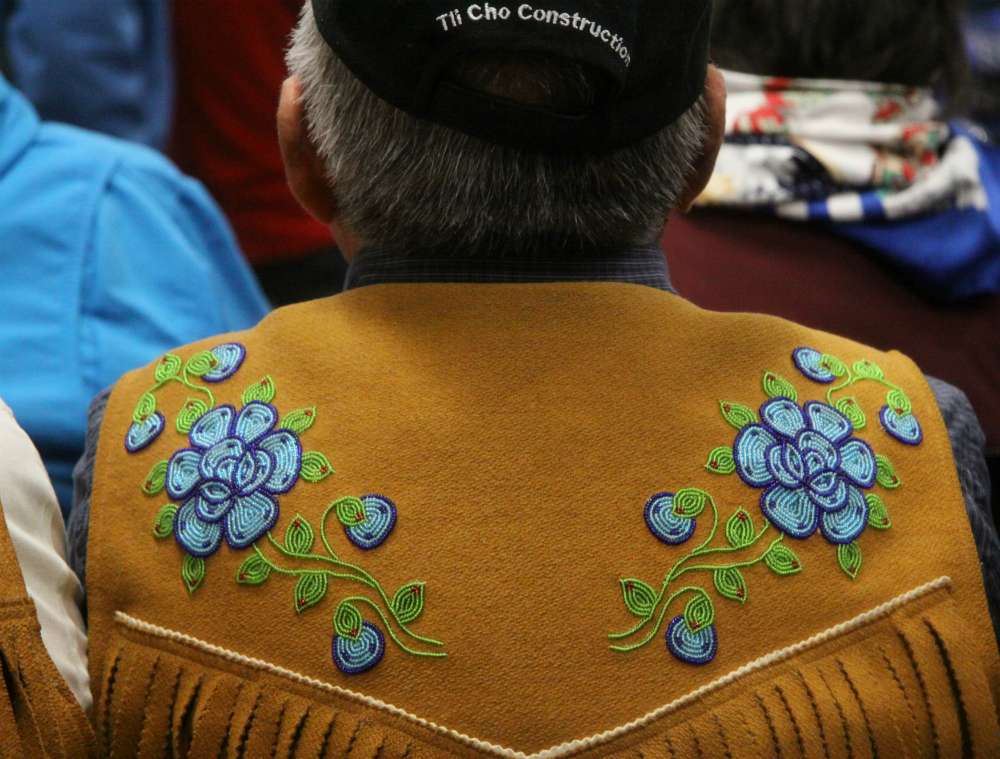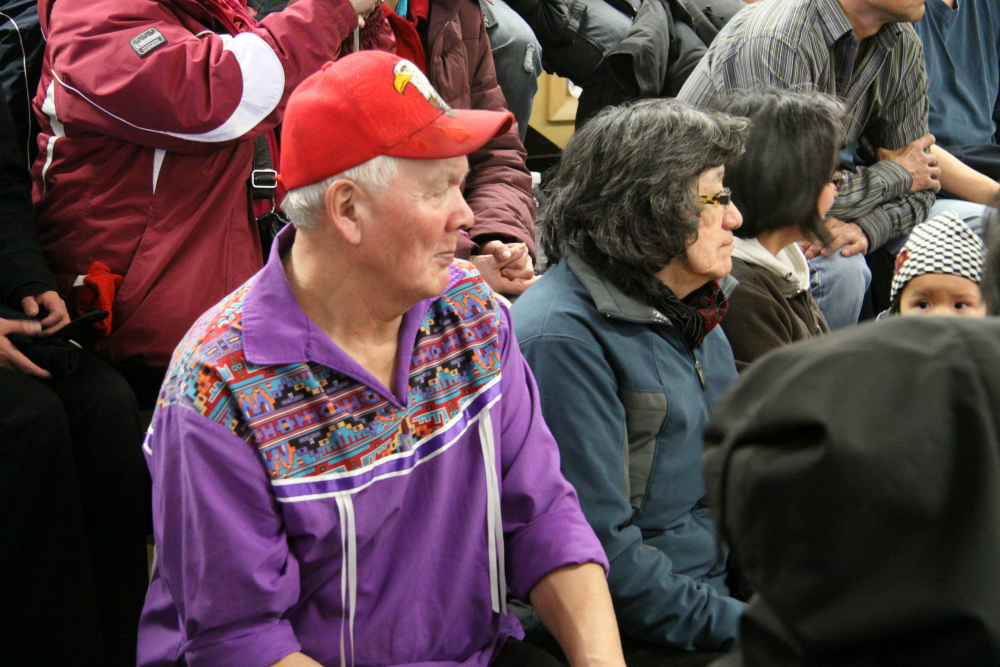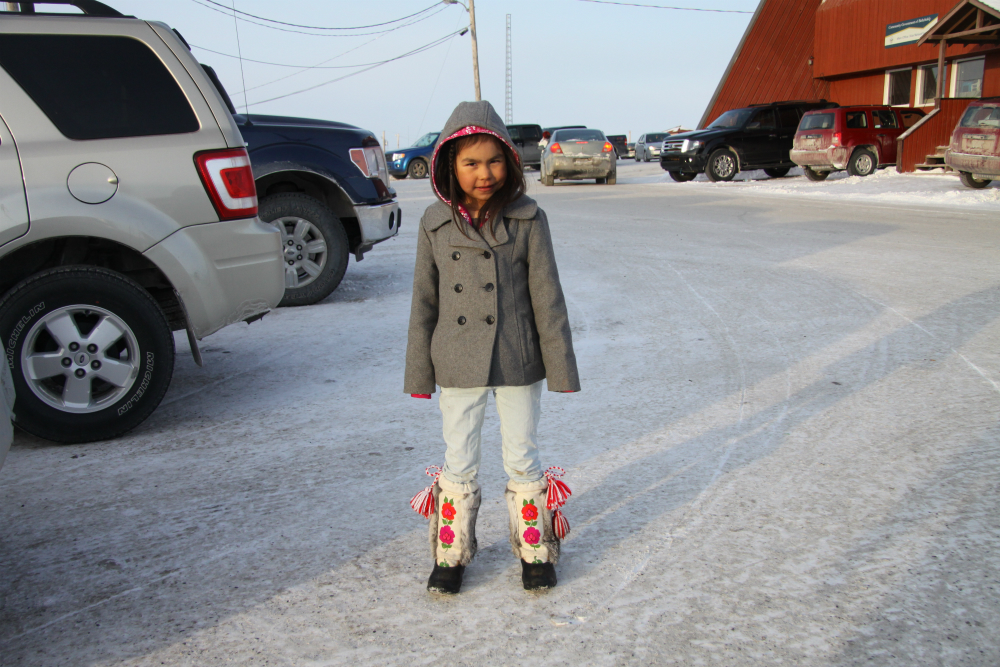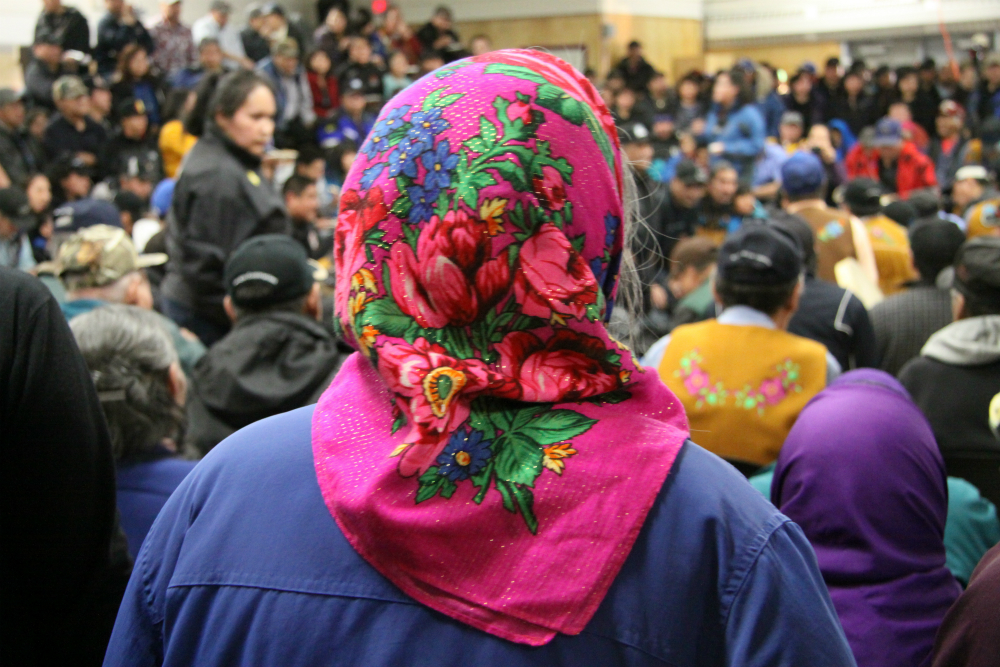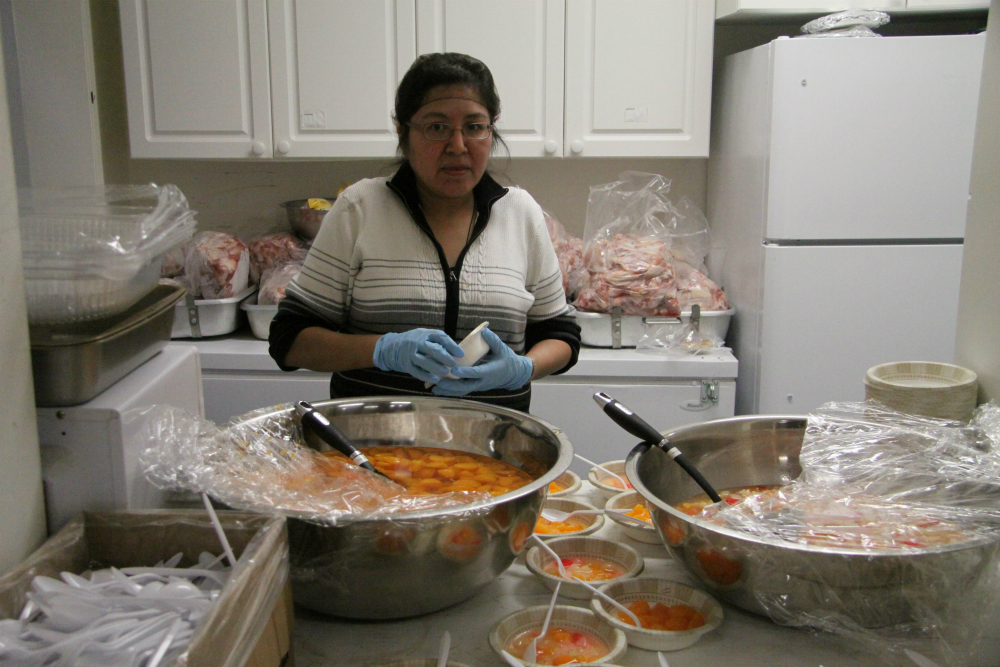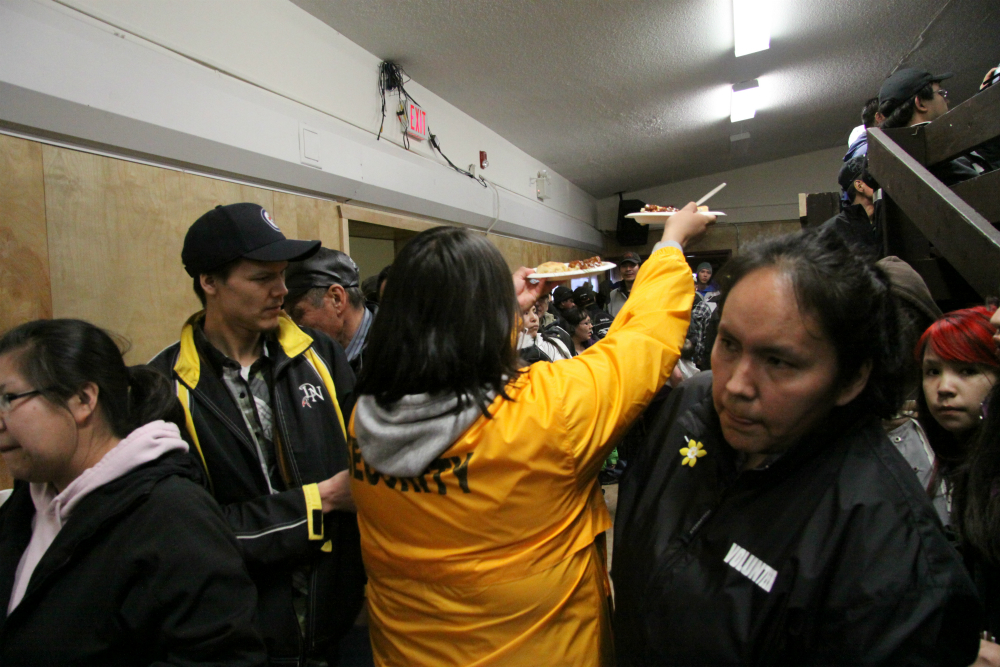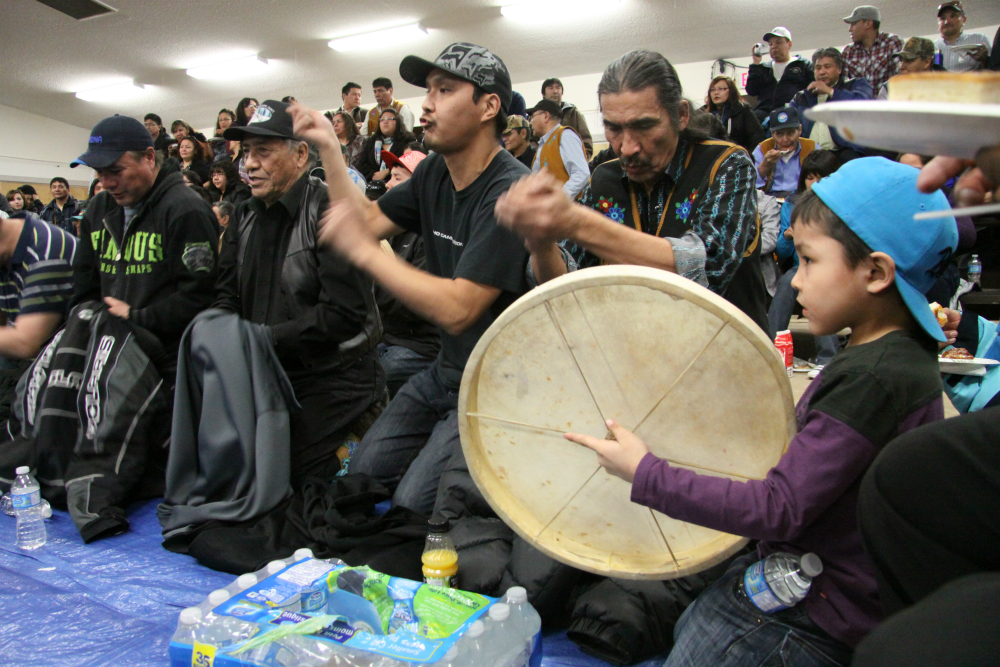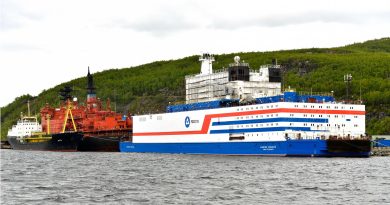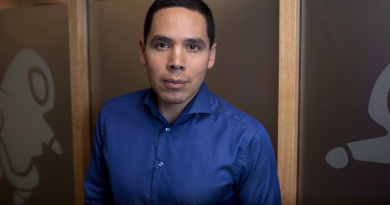60 teams eye $100K in prizes at Dene hand games in Northwest Territories
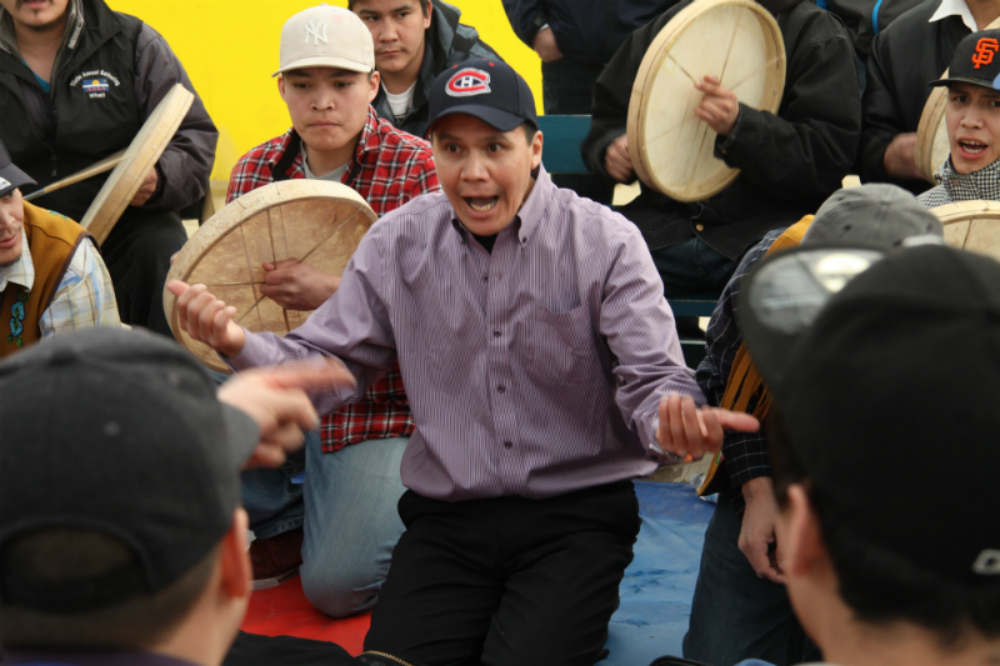
Dozens of teams from across northwestern Canada have congregated in the small community of Behchoko in the Northwest Territories to compete in the 12th annual Ediwa Weyallon hand games tournament.
With $100,000 in prizes this year’s tournament is being billed by organizers as the largest ever and has attracted up to 60 teams from Dene communities in the N.W.T, Yukon and northern Alberta. Behchoko, located about 100 kilometres northwest of Yellowknife, the capital of the N.W.T., is a Dene community with about 2,000 residents.
The teams compete by trying to guess in which hand the opposing team players hold a token. The players, backed by a cheerleading group of drummers, use elaborate hand gestures to confuse the opponents and to call the play.
Accompanied by deafening drumming and rhythmic chanting, the opposing teams take turns at hiding tokens and guessing in which hand the players from the other team have hidden the tokens.
In the past Dene hunters played this game for matches, ammunition or pelts. These days the winners walk out with a large cash prize. The winning team will take home $30,000, with the remaining prize money shared among next seven finishers. The tournament ends on Sunday.
For more on the rules of the hand game, click here.
Related stories from around the North:
Canada: Mushers reach halfway point of Yukon Quest sled dog race, Radio Canada International
Finland: Nordic World Ski Championships in Finland promise medals and magic, Yle News
Greenland: Siberian huskies, Greenland sled dogs share DNA with today’s canine companions, Radio Sweden
Norway: Finnmarksløpet 2015 dog sledge race underway in Europe, Barents Observer
United States: Alaska: Officials ban trailers for carrying dogs in Iditarod, Alaska Public Radio Network

